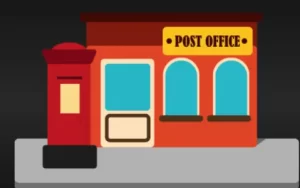![]()
One of the finest Spiritual Guru “Dada shri ji” said – “The cause of suffering is lack of LOVE” & Its very True.
Have you ever thought about how deeply we are involved in each & every emotion with people we come across in day to day life?
Almost everyone has experienced being wronged by someone. It could be a former co-worker, friend, or family member. But hanging on to those negative feelings can do great harm to your health as well as your mind. [ Rather I say suffering at Mind – Body – Soul level].
So HOW to overcome this, everyone needs an answer, or few may follow some different practices.
But one of the simplest ways which I could find is – Act of “Forgiveness”
“Forgiving a person who has wronged you is never easy, but dwelling on those events and reliving them over and over can fill your mind with negative thoughts and suppressed anger, Yet, when you learn to forgive, you are no longer trapped by the past actions of others and can finally feel free.”
Learning to Let it Go …
There are two sides to forgiveness:
- Decisional — Decisional forgiveness involves a conscious choice to replace ill will with good will. “You no longer wish bad things to happen to that individual,”
- Emotional – Emotional forgiveness, you move away from those negative feelings and no longer dwell on the wrongdoing. “Emotional forgiveness is much harder and takes longer, as it’s common for those feelings to return on a regular basis.
One of the best ways to practice forgiveness is with the REACH method. REACH stands for Recall, Emphasize, Altruistic gift, Commit, and Hold. Here is a look at each step.
Recall. The first step is to recall the wrongdoing in an objective way. The goal is not to think of the person in a negative light nor to wallow in self-pity, but to come to a clear understanding of the wrong that was done. Visualize the person and situation and all the feelings that come with it. Don’t push aside anything, especially if it makes you feel angry or upset.
Empathize. Next, try to understand the other person’s point of view regarding why he or she hurt you, but without minimizing or downplaying the wrong that was done. Sometimes the wrongdoing was not personal, but due to something the other person was dealing with. “People who attack others are sometimes themselves in a state of fear, worry, and hurt, “They often don’t think when they hurt others, and they just lash out.”
Altruistic gift. This step is about addressing your own shortcomings. Recall a time when you treated someone harshly and were forgiven. How did it make you feel? Recognizing this helps you realize that forgiveness is an altruistic gift that you can give to others.
Commit. Commit yourself to forgive. For instance, write about your forgiveness in a journal or a letter that you don’t send or tell a friend. “This helps with the decisional side of forgiveness.
Hold. Finally, hold on to your forgiveness. This step is tough because memories of the event will often recur. “Forgiveness is not erasure,” Rather, it’s about changing your reaction to those memories.”
When the bad feelings arise, remind yourself that you have forgiven and ultimately you want good for the offender. If needed, revisit your commitment by reading your journal entries or letters, or recalling the shared conversation with a friend.
So … What are you waiting for… Just try to start the practice of this Act & see the miraculous changes in your life.
Ref To learn more about – The power of forgiveness – Harvard Health
Lodss of Love & Gratitude
Tusshar K







